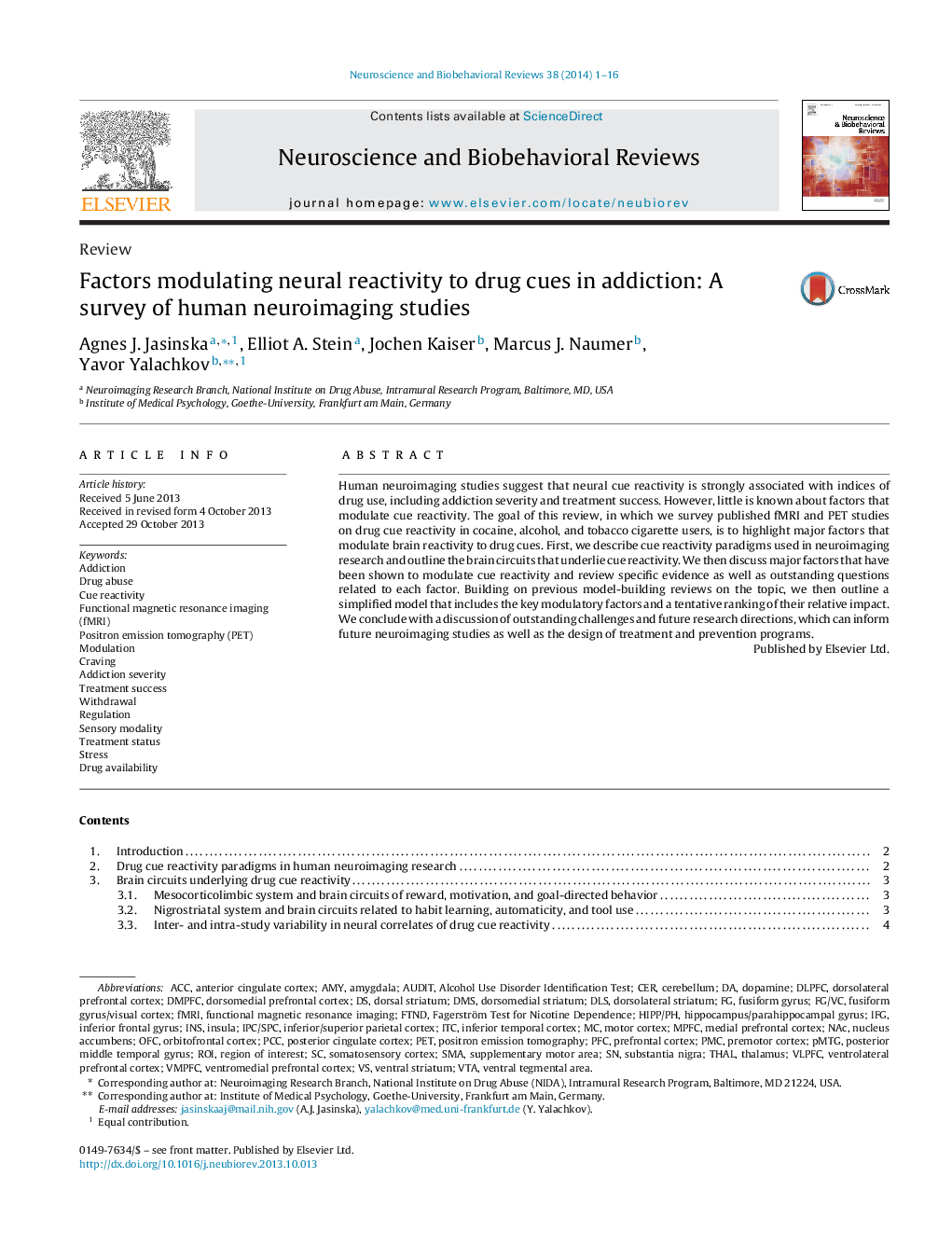| Article ID | Journal | Published Year | Pages | File Type |
|---|---|---|---|---|
| 937747 | Neuroscience & Biobehavioral Reviews | 2014 | 16 Pages |
•Neural reactivity to cocaine, alcohol and tobacco cues is modulated by:.•Treatment status, length and intensity of use, addiction severity, abstinence.•Stress, drug availability, sensory modality and length of presentation of cues.•Explicit and implicit cognitive regulation.•These factors have both main and interactive effects.
Human neuroimaging studies suggest that neural cue reactivity is strongly associated with indices of drug use, including addiction severity and treatment success. However, little is known about factors that modulate cue reactivity. The goal of this review, in which we survey published fMRI and PET studies on drug cue reactivity in cocaine, alcohol, and tobacco cigarette users, is to highlight major factors that modulate brain reactivity to drug cues. First, we describe cue reactivity paradigms used in neuroimaging research and outline the brain circuits that underlie cue reactivity. We then discuss major factors that have been shown to modulate cue reactivity and review specific evidence as well as outstanding questions related to each factor. Building on previous model-building reviews on the topic, we then outline a simplified model that includes the key modulatory factors and a tentative ranking of their relative impact. We conclude with a discussion of outstanding challenges and future research directions, which can inform future neuroimaging studies as well as the design of treatment and prevention programs.
